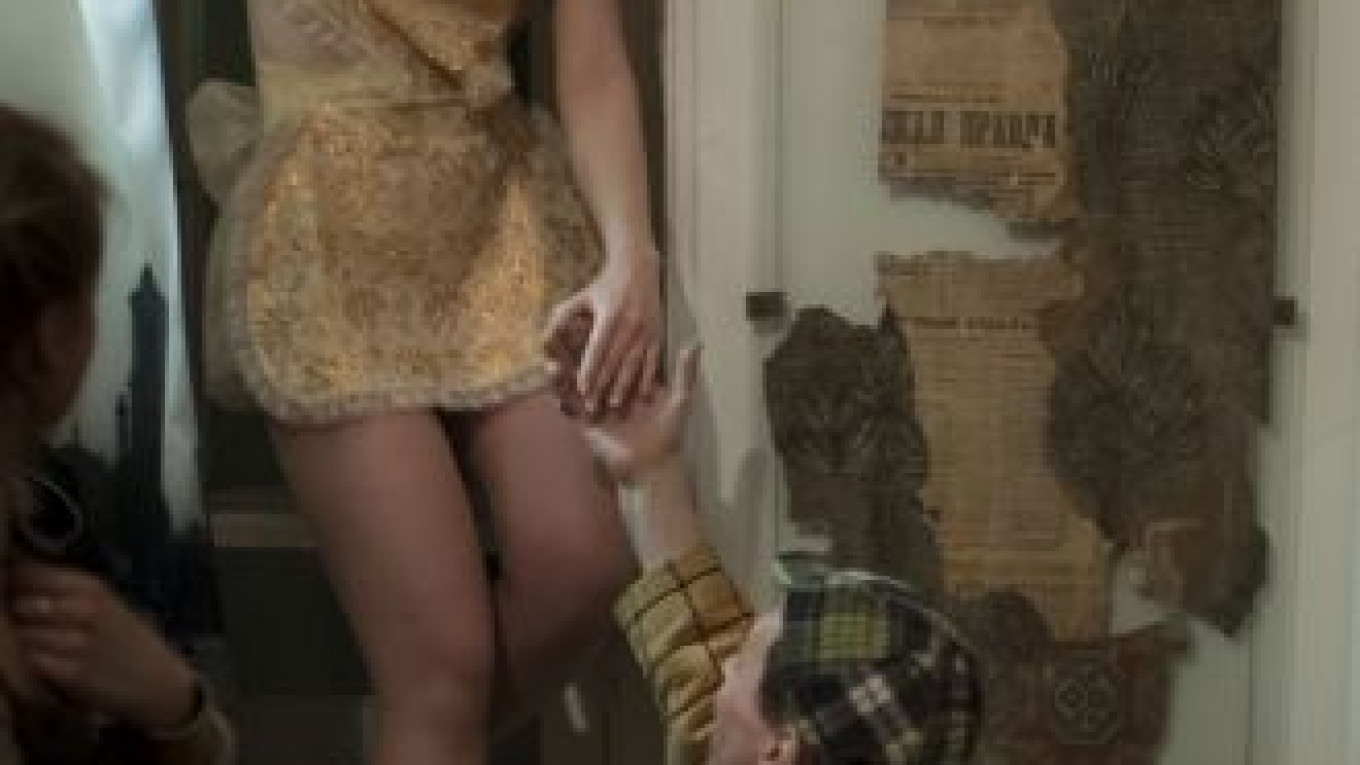A night-time visit to a haunted house is probably not at the top of your to-do list. But perhaps it should be. A courtyard near the Mayakovskaya metro station is home to the most literary of ghouls.
Bolshaya Sadovaya, Building 10, apartment 50 was Mikhail Bulgakov's first house in Moscow, from 1921 to 1924. It was a poorly kept, mildewy estate at the time, since this period of his life was marked by poverty. Hence the Ukranian-born author named it "nekhoroshaya kvartira," the bad or odd apartment.
Despite its initially dilapidated state, the odd apartment and its inhabitants became a major source of inspiration for the ghouls and other oddball characters in Bulgakov's stories.
The roamings of his neighbor Anna Goryacheva, who was eloquently dubbed "scandalous babe" by Bulgakov's wife, showed up in four of Bulgakov's stories. The most famous one being "The Master and Margarita," in which she served as inspiration for Woland's naked demoness.
Currently, Bulgakov's former living quarters are a hub for creative theatrical activities. The theater group Komediant hosts nightly excursions through the apartment.
At this guided tour, an actor takes you room by room through Bulgakov's life story, but is continuously interrupted by obtrusive evil spirits from Bulgakov's most famous novel.
In the evening, the place is dimly lit. Eerie music and sound effects recreate a strong impression of Bulgakov's mystical world where anything can happen.
Multiple times during the tour, Woland and his demonic cat Behemoth enter the room, interrupting the excursion to play out scenes from "The Master and Margarita."
"At night, the house is at its most interesting," said Dmitry Mayorov, who plays the Behemoth in the excursion. "Our tour is interactive and largely improvised. With it, we recreate the atmosphere of Bulgakov's books, in a way that would not be possible at any other location."
The scarcity of items that Bulgakov actually owned while living in the house — a curse of many writer-themed museums in Russia — is well made up for by the way the theater group brings his famous story to life.
The theatrical interruptions give a good sense of Bulgakov's intention in portraying his flatmates as demons. Throughout his time living there, it was a communal apartment in which Bulgakov and his wife inhabited only one room, and they had little privacy.
The "Odd Apartment Number 50" is not the first Bulgakov relic that visitors come across when they enter the courtyard. Left of the entrance to the courtyard, there is another Bulgakov museum. Here, visitors are given a warm welcome by the eccentric Anatoly Pershin.
Pershin trots around the entrance, insisting that visitors don't forget their free entry ticket and tying in conversation in an absurd Bulgakov-like manner, with everyone willing to listen.
"This is a very mystical place," Pershin concluded, after telling the long history of the buildings surrounding the courtyard, in which, if we choose to believe Pershin, even Rasputin once came to drink at the bar that once stood there.
Inside, as well as outside, the museum is mostly created around Bulgakov inspired objects: bronze statues of Bulgakov's characters, drawings, and old posters advertising his plays.
The museum's main draw, similar to the odd apartment, is not its collection, but its ambiance. It is home to a hodgepodge of Bulgakov themed items, leaving the impression of it being a collection open to everything with Bulgakov's name on it.
The three-room museum is actually a front for a small theater located in its basement. It is this theater that mostly determines the museum's charm. Its cash register is located in the third room, and it also operates as a coffee room.
The theater draws an interesting crowd, showing that the wondrous world of Bulgakov is not something of the past.
"Bulgakov was a visionary, a writer of the future. His stories will be relevant for another hundred years. Bulgakov's energy lives on," Mayorov said.
This energy is tangible in the sheer number of initiatives at Bolshaya Sadovaya that are instigated in his name. From plays to books, artworks and even the characters of people working at the museums. They all came to life from the worlds in Bulgakov's books.
The theater hosts a large range of performances based on Russian literary works. Unfortunately for our readers, all plays are performed in Russian. However, Komediant's theater director, Irina Yegorova, noted that if the requests from foreign visitors increase, they will consider arranging translations.
The theater museums are located at 10 Bolshaya Sadovaya. The odd apartment is open until 9 p.m. and the theater until 11 p.m. Night excursions are on Tuesdays. www.dombulgakova.ru and www.teatre-komediant.ru
Contact the author at artsreporter@imedia.ru
Related articles:
A Message from The Moscow Times:
Dear readers,
We are facing unprecedented challenges. Russia's Prosecutor General's Office has designated The Moscow Times as an "undesirable" organization, criminalizing our work and putting our staff at risk of prosecution. This follows our earlier unjust labeling as a "foreign agent."
These actions are direct attempts to silence independent journalism in Russia. The authorities claim our work "discredits the decisions of the Russian leadership." We see things differently: we strive to provide accurate, unbiased reporting on Russia.
We, the journalists of The Moscow Times, refuse to be silenced. But to continue our work, we need your help.
Your support, no matter how small, makes a world of difference. If you can, please support us monthly starting from just $2. It's quick to set up, and every contribution makes a significant impact.
By supporting The Moscow Times, you're defending open, independent journalism in the face of repression. Thank you for standing with us.
Remind me later.


